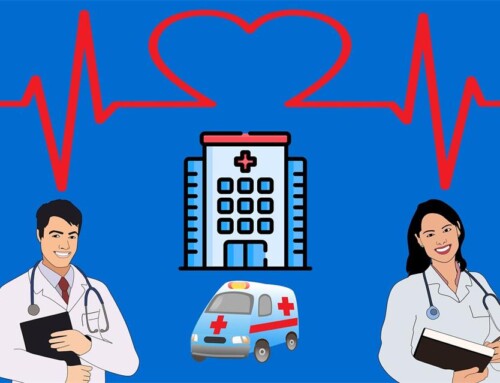Remember when you were eight years old and scraped your knee on the playground? Within a few days, that cut would disappear without leaving much of a trace. Fast forward to today, and you might notice that even small injuries seem to take forever to heal. This isn’t just your imagination—your body really does heal differently as you get older.
What Actually Changes in Your Body
As people age, several important changes happen inside the body that affect healing. The most obvious change is that skin becomes thinner and more fragile.
When you’re young, your skin has lots of collagen, which is the protein that keeps skin strong and stretchy. As you get older, your body makes less collagen each year. This means cuts and bruises happen more easily, and they take longer to repair themselves.
Blood circulation also slows down with age. When you’re younger, blood moves quickly through your body, bringing oxygen and nutrients to injured areas. This fast delivery system helps wounds heal quickly. As you age, blood vessels become stiffer and blood flow decreases. This means healing materials take longer to reach the places that need them most.
Your immune system changes too. When you’re young, your body’s defense system works really fast to fight off germs and start the healing process. As you get older, this system doesn’t respond as quickly.
It’s still working, but it moves at a slower pace. This is one reason why older adults need to be more careful about keeping wounds clean and getting proper medical attention when needed.
Why Recovery Takes More Time
The healing process involves several steps that all slow down with age. First, your body needs to stop any bleeding. Then, it has to clean out damaged tissue and fight off any germs. Next, new tissue starts growing to fill in the injury. Finally, the new tissue strengthens and becomes more organized.
Each of these steps takes longer in older bodies. The blood vessels don’t contract as quickly to stop bleeding. The cleanup process moves more slowly. New tissue grows at a reduced rate. Even the final strengthening phase takes more time. What might have taken three days to heal when you were ten could take two weeks when you’re seventy.
Medications can also affect healing speed. Many older adults take several different medicines for various health conditions. Some of these medications, especially blood thinners, can slow down the healing process. Others might affect how well the immune system works or how quickly new tissue can grow.
The Role of Overall Health
Your general health plays a huge part in how well you heal. People who eat nutritious foods, get enough sleep, and stay physically active tend to heal faster than those who don’t. This is true at any age, but it becomes even more important as you get older.
Conditions that are common in older adults can make healing slower. Diabetes affects blood sugar levels, which can interfere with the healing process. Heart disease reduces blood flow throughout the body. High blood pressure can damage small blood vessels that are important for healing. When someone has multiple health conditions, healing becomes even more challenging.
Many families find that having access to professional home health care services can make a significant difference during recovery periods. Trained caregivers can help monitor healing progress, keep wounds clean, and make sure medications are taken properly. This type of support often helps people heal more completely and reduces the risk of complications.
When Healing Becomes Complicated
Sometimes, healing doesn’t go according to plan. Infections can develop more easily in older adults because their immune systems don’t fight germs as effectively. Wounds might reopen because the new tissue isn’t as strong as it used to be. Some injuries develop into chronic wounds that don’t heal properly on their own.
Older adults are also more prone to developing complications from seemingly minor injuries. A small cut that wouldn’t worry a twenty-year-old might become a serious problem for someone who is eighty. This is why it’s so important for older adults and their families to take all injuries seriously, even ones that seem minor.
Poor nutrition can make healing problems worse. Many older adults don’t eat enough protein, vitamin C, or zinc—all nutrients that are essential for proper healing. Dehydration is another common problem that slows down recovery. When the body doesn’t have enough water, it can’t transport healing materials effectively.
Making the Most of Your Body’s Healing Power
Even though healing slows down with age, there are many things people can do to help their bodies recover as well as possible. Eating plenty of protein helps the body build new tissue. Foods rich in vitamin C, such as oranges and strawberries, support collagen production. Zinc, found in foods such as meat and nuts, helps wounds close properly.
Getting enough sleep is crucial because most healing happens while you rest. During sleep, your body focuses its energy on repair work instead of daily activities. People who don’t sleep well often heal more slowly than those who get seven to eight hours of good sleep each night.
Staying hydrated helps too. Water carries nutrients to injured areas and helps remove waste products from healing tissues. Even mild dehydration can slow down the healing process.
Physical activity, when appropriate, can improve healing by increasing blood flow. Obviously, you shouldn’t exercise an injured area, but gentle movement of uninjured parts helps keep blood circulating throughout the body.
Understanding What’s Normal
It’s important to know what to expect when healing at different ages. A cut that healed in three days at age twenty might take a week at age fifty and two weeks at age seventy. This longer timeline is completely normal and doesn’t mean anything is wrong.
However, some signs indicate that healing isn’t going well. Wounds that get redder, more swollen, or more painful over time might be infected. Areas that feel unusually warm or start producing pus need medical attention. Any wound that hasn’t started healing after a week or continues getting worse should be checked by a healthcare provider.
The key is being patient with your body while staying alert for problems. Healing takes longer as you age, but it still happens. Understanding these changes helps people make better decisions about their health and know when to seek help.
Your body might not heal as quickly as it used to, but with proper care and attention, it can still recover well from most injuries and health challenges.





